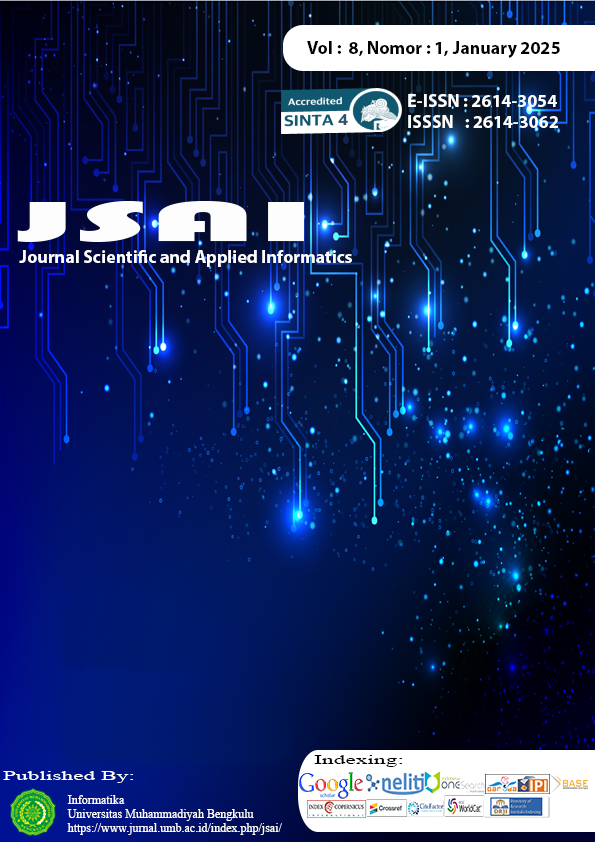Transformation of Social Interaction, Trust, and Norm to Support the Development of Knowledge Management System
DOI:
https://doi.org/10.36085/jsai.v8i1.7905Abstract
The success of a Knowledge Management System (KMS) is not solely determined by technological aspects but also by social factors such as social interaction, trust, and norm of reciprocity, which influence the process of explicit knowledge sharing. This study aims to analyze the role of these three factors in supporting KMS development in higher education institutions. This research employs a descriptive and exploratory approach, utilizing a survey method involving 420 student respondents from various universities in Indonesia. Data were collected through an online questionnaire and analyzed using SMART PLS (Partial Least Squares-Structural Equation Modeling). The analysis results indicate that all indicators have good validity (loading factor > 0.7) and meet the reliability criteria (Cronbach’s Alpha and Composite Reliability > 0.7). Hypothesis testing using the bootstrapping method shows that Social Interaction (P = 0.002) and Norm of Reciprocity (P = 0.003) significantly influence Explicit Knowledge Sharing, while Trust (P = 0.062) remains an acceptable contributing factor. These findings suggest that the successful implementation of KMS in higher education institutions must consider the social aspects that shape the academic environment. Enhancing social interaction, strengthening trust, and fostering a culture of knowledge sharing are essential factors in optimizing KMS utilization.
Downloads
Published
Issue
Section
License
Copyright (c) 2025 Handrie Noprisson

This work is licensed under a Creative Commons Attribution-NonCommercial-NoDerivatives 4.0 International License.







